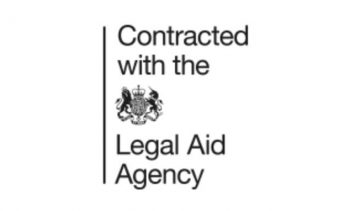As a landlord, navigating the complexities of property laws and regulations can sometimes feel like a daunting task.
Among the rules and guidelines, landlords must understand different kinds of eviction notices, specifically Section 8 and Section 21 notices.
These eviction notices are crucial tools for landlords, enabling them to manage tenancy and property rights in England and Wales.
Understanding Section 8 and Section 21 Notices
The Section 8 and Section 21 notices are issued under the Housing Act 1988, but they serve distinct purposes and operate under unique sets of rules and circumstances.
A Section 21 Notice
The Section 21 notice, often referred to as a ‘no-fault eviction’, enables landlords to recover possession of a property at the end of a fixed-term tenancy or during a periodic tenancy, without providing a specific reason. However, the landlord must give a minimum of two months’ notice.
Key to a Section 21 notice is that the landlord must have complied with specific legal requirements, including protecting the tenant’s deposit in a government-approved scheme, providing an Energy Performance Certificate and a current Gas Safety Certificate, where applicable.
A Section 8 Notice
A Section 8 notice, on the other hand, is used when a tenant has breached the terms of the tenancy agreement. This could include failure to pay rent, damage to the property, or antisocial behaviour. The landlord is required to specify the grounds for eviction, which are outlined in Schedule 2 of the Housing Act 1988.
The notice period for a Section 8 can vary based on the grounds cited. For instance, if the tenant is in significant rent arrears, a notice period might be as short as two weeks.
Making the Right Choice: Section 8 or Section 21?
From a landlord’s perspective, the decision to use a Section 8 or Section 21 notice often depends on the circumstances.
If a tenant is in breach of their agreement (like owing rent), a Section 8 notice might seem the obvious choice. However, the process can be lengthy and may require going to court, which can be costly and time-consuming.
In contrast, a Section 21 notice can be a more straightforward option, assuming the landlord has met all their legal obligations. Yet, it cannot be used until the end of a fixed-term tenancy or during a periodic tenancy, making it less suitable when immediate action is needed.
It’s also worth noting that under a Section 21 notice, landlords cannot claim any unpaid rent. If rent arrears are substantial, a Section 8 notice may be more suitable as it allows the landlord to seek possession and make a claim for any unpaid rent.
Both notices have their benefits and challenges. To make an informed decision, it’s important to carefully consider the specific circumstances and potentially seek professional advice
Please note that the information provided here serves general purposes only and should not be considered a substitute for professional legal advice.


